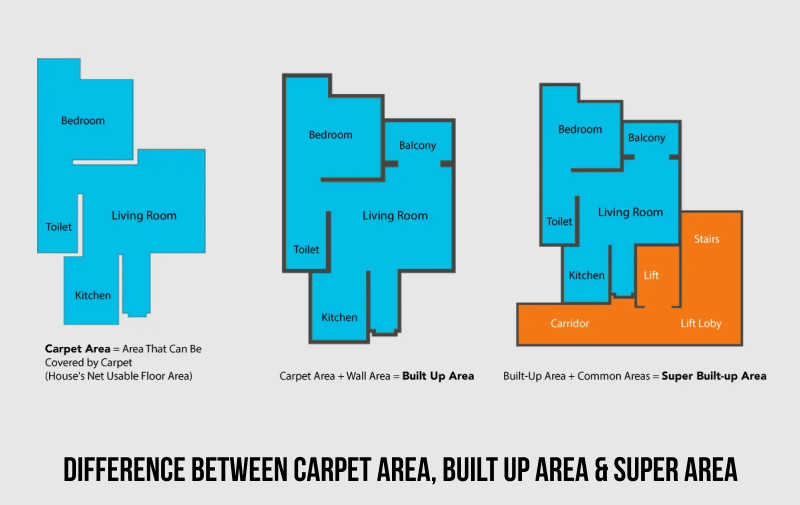Your guide for redevelopment and taxation of property-Part 2
 While the previous article (Your guide for redevelopment and taxation of property-Part 1), we discussed about what is redevelopment, advantages of redevelopment and the process of redevelopment, in this article we reveal about the implication of tax on redevelopment.
While the previous article (Your guide for redevelopment and taxation of property-Part 1), we discussed about what is redevelopment, advantages of redevelopment and the process of redevelopment, in this article we reveal about the implication of tax on redevelopment.
Under redevelopment agreements besides the redeveloped property with additional space/area, owner(s) of the property also gets money for shifting charges, rent in lieu of accommodation and corpus. For all these receipts tax implication is as given below:
Shifting charges:– Money received towards shifting charges/expenses by the members of housing society or individual owner is not an income. The member of the housing society or the individual owner will have to vacate his flat/house and shift to the accommodation provided by the developer or rented accommodation, and obviously he will have to bear expenses for such shifting, which is paid to him by the builder under the redevelopment agreement. Hence, it is neither an income nor subject to payment of income tax.
 Rent in lieu of accommodation:-When builder does not provide accommodation to the owner to shift in, after vacating the property which is the subject of the redevelopment, he is required to pay money to the owner towards payment of the rented accommodation. The owner has to pay rent from that money for the new rented accommodation. For computation of tax it will be treated as “Income from other source” and deduction for the actual rent paid is allowed as expenses under section 57(iii) of Income Tax Act, 1961. Surplus amount (if any) or entire amount if actually no rent is paid, is taxable under head “Income from other source”
Rent in lieu of accommodation:-When builder does not provide accommodation to the owner to shift in, after vacating the property which is the subject of the redevelopment, he is required to pay money to the owner towards payment of the rented accommodation. The owner has to pay rent from that money for the new rented accommodation. For computation of tax it will be treated as “Income from other source” and deduction for the actual rent paid is allowed as expenses under section 57(iii) of Income Tax Act, 1961. Surplus amount (if any) or entire amount if actually no rent is paid, is taxable under head “Income from other source”
Corpus:- This money is paid by the builder to the members of the society or individual owner for a specific purpose. It is for the inconvenience caused to the owner and for payment of municipal taxes after the property is redeveloped.This is in the nature of capital receipt, and Income Tax Tribunal, Mumbai. The Income Tax Tribunal, Mumbai in its several latest judgments, have declared that this fund also known as “Hardship Compensation” is not taxable as there is no cost of acquisition.
Capital Gains Tax:- Individual house or flat in a housing society owned by a person is “Capital Asset” under section 2(14) of Income Tax Act, 1961 and the U/s 45 of the said act states that, ‘Any profits and gains arising from the transfer of a capital asset is chargeable to tax’. Under redevelopment agreements, it is assumed that the owner of the property has given up his existing flat in exchange of new property along with certain amount of money. Since exchange is regarded as transfer, such transaction resulting in capital gains will attract the incidence of “Capital Gains Tax”.
If the existing (old) property is held for 3 years or more it will be subject to “Long Term Capital Gains Tax”. For computation of tax under this head the purchase price of the property will have to be indexed as per Cost of Inflation Index (CII) of base year 1981-82. This indexed purchase price plus any other cost incurred for improvement of the property will be taken as “Cost of Acquisition”. If the owner gets the redeveloped property within 3 years from transfer of the old property, he is entitled to get exemption under section 54 of the I.T.Act, 1961 and the cost of acquisition calculated as above will be deducted from the estimated market value of the new property received in exchange of the old property. As provided under section 48 of I.T. Act, 1961, if the market value of the redeveloped (new) property is more than the cost of acquisition then the difference amount will be treated as “Long Term Capital Gains” and the assessee will be liable to pay tax as per his/her tax slab on the LTCG calculated as above.
 |
This article is contributed by -IndianPropertyLawyers, simplifying property
|







